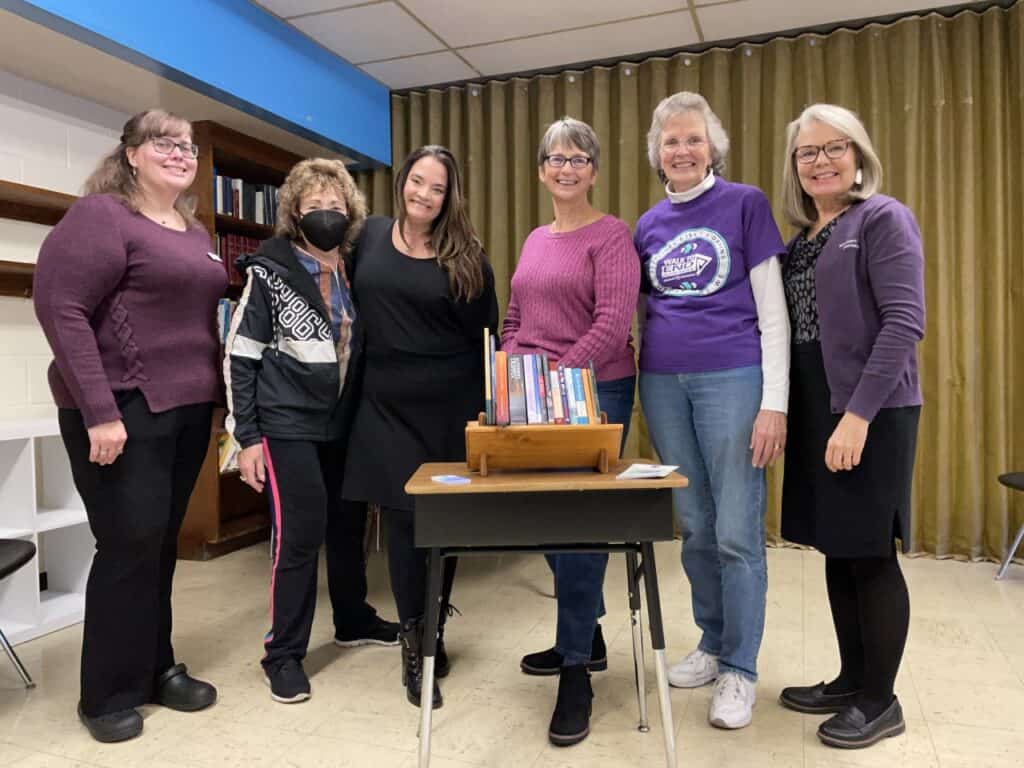
AlzAuthors co-founder Marianne Sciucco says her connection to Alzheimer’s disease began in the late 1980s when her aunt was diagnosed with Alzheimer’s.
“We were very close; she was my mother’s older sister by 15 years,” Sciucco said. “We spent holidays and weekends with her. She was a caring, loving person, and an active part of our lives growing up. I was in my 20s when she was diagnosed and she went into long-term care.”
She said the disease was particularly hard to deal with as her aunt progressed to the late stages and no longer recognized her loved ones.
“She didn’t know anyone anymore. She went all the way to the late stages of it. She didn’t get any relief from any co-morbidity, and then the family got dragged through it as well,” she said.
Later, Sciucco encountered people living with dementia while working as a nurse in long-term care as a case manager – and eventually a particular couple inspired her to write.
“I went to nursing school and worked in long-term care as an aide and discovered dementia care in the facility. I actually enjoyed that. So, when I became a nurse, I worked in the hospital as a case manager — you always have dementia patients when you’re in a hospital. One day, this couple inspired me to write my first novel. I was just captivated by the wife in particular. She needed to go for further nursing care in a facility, and her son asked me to make sure they didn’t leave the hospital without him. I started thinking,
‘What would happen if they did, and the son wasn’t there, and the husband took the wife, and they disappeared.’ It is a novel, a love story. It’s a little book, but it went a long way. I ended up founding this organization.”
AlzAuthors was created in 2015 by Sciucco with fellow authors Jean Lee and Vicki Tapia. “We had been in correspondence with each other. I just thought, I wonder if I can get together with other authors of Alz books. We got together a one-month awareness campaign, and it was a lot of fun. We discovered we liked each other. Eventually, we started a blog, and other authors came on.”
Now they have more than 300 hundred authors, a podcast and a bookstore that links to Amazon, which makes it easier for people to find books focused on their particular needs.
“The Custom Caregiver Collection is the latest project. We launched it a few months back. We have 18 out there in the world, and there are two more in the works. We donated one to the Alzheimer’s Association support group that meets at Temple Sinai in Middletown. I think it has 15 titles. They were selected according to the needs of that group. We work with the contacts at the groups to find out the needs, and we customize it to meet them. A lot of the books were about caring for your spouse. They wanted memoirs, rather than how-tos, and a few kids’ and teen books are in there. We have poetry books, art books, journaling books. Several fictional books as well. Sometimes that is an easier way to digest the information. People who are on that journey like the book and think it reflects their journey; while someone who doesn’t really know about
Alzheimer’s can learn about it by following the story. It’s not as up close and personal as something that really happened, but you know it could have happened.”
From 2-3 p.m. Tuesday, Nov. 15, Sciucco and two other AlzAuthors writers from New York, Daniel Kenner and Kate Hanley, will take part in a virtual panel discussion following a presentation on Understanding Alzheimer’s and Dementia by Alzheimer’s Association Community Educator Josh Deschino.
“We’re going to talk about the value of storytelling in caregiving,” Sciucco said, adding, “In many ways, there is silence and stigma associated with a dementia diagnosis. Families may not even talk to each other about the realities of the experience. We find that when people are able to share their experiences — whether it’s in a support group or the community, with your coworkers, your neighbors or the people in your church — it makes it easier to deal with. Writing about it is very therapeutic, even if people don’t want to share it. A lot of the books were written from those writings, from people’s diaries and journals.”
She added that when people with the disease write about their experiences, it can also offer a valuable perspective. “We are very blessed when we can get insight from a person living with dementia. We have several books in our collection either by the person with the disease or written for that person by a professional author. They are amazing books that tell us so much that otherwise is lost. We feature a lot of them on our podcast so we can share their stories. It’s obviously people in the early to middle stages, who are able to articulate what it’s like to live in their head, and what it’s like to experience the losses associated with the disease.”
To learn more, visit AlzAuthors.com, where you can access links to their Amazon store, their Custom Caregiver Collections and more. Register online for the virtual panel discussion on Nov. 15, or call the Alzheimer’s Association at 800.272.3900.





